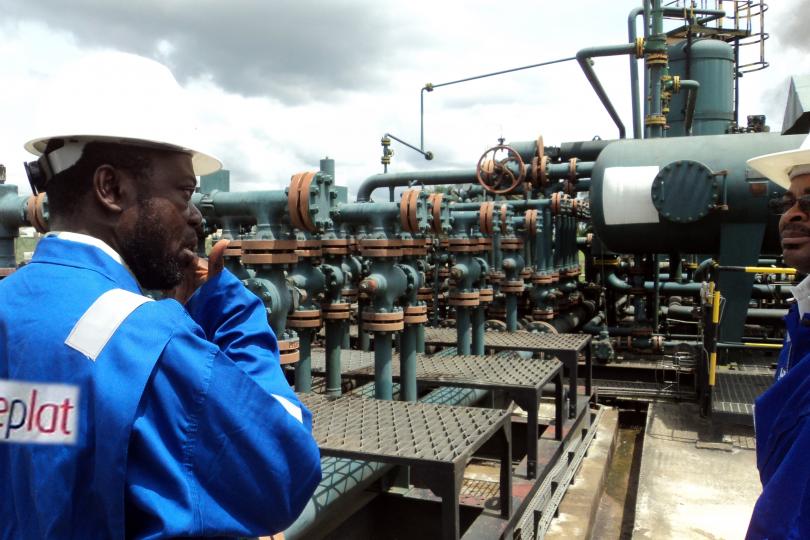- NPDC, Seplat Short-changed FG by $1.8bn, N8.8bn —Presidential Panel
The Special Presidential Investigation Panel for the Recovery of Public Property says the Nigerian Petroleum Development Company Ltd and one of its Joint Venture partners, Seplat Petroleum Development Company Plc, have short-changed the Federal Government by $1.8bn and N8.8bn from 2013 to 2017.
Responding to inquiry on Sunday, the NPDC, which is the flagship subsidiary of the Nigerian National Petroleum Corporation, admitted the indebtedness but said it was working towards liquidating it.
The Mr Okoi Obono-Obla-led SPIPRPP said in a report obtained on Sunday, that its year-long investigation revealed that the sums of money represented the royalties on oil and gas, concessional rental and gas flaring penalty due to the Federal Government but which the NPDC and Seplat refused to remit.
A copy of the executive summary of the report stated that apart from Seplat, other JV partners operating various Oil Mining Licences had also under-remitted funds to the Federal Government.
As part of the findings of its panel’s investigation, the report stated, “Analysis of recovered records and other documents collected including statements revealed as follows:
“That NPDC has Joint Venture agreements with the following nine companies to operate Oil Mining Leases: Seplat/NPDC JV (OML 4, 38 and 41); ND Western (OML 34); Elcrest /NPDC JV (OML 40); Neconde/NPDC JV (OML 42); NAOC (Nig. Agip Oil Coy)/NPDC JV (OML 60, 63); FHN (First Hydrocarbon Nigeria)/NPDC (OML 26); Abura/Oredo/Oziengbe (OML 65, 111); Okono/Okpoho/NPDC JV; and Shoreline/NPDC JV (OML 30).
“The NPDC and its JV partners have failed to remit to the Federal Government its complete due on royalty (oil); royalty (gas); concessional rental; and gas flared penalty.”
According to the report of the total sum of $1,824,469,208.36 allegedly not remitted to the Federal Government, the NPDC owes $1,791,045,591,18, while Seplat owes $33,423,617.18.
The report added that of the N8,825,778,039.61 due to be paid to the Federal Government, the NPDC was allegedly responsible for N7,523,749,610.15, while Seplat owed N1,302,028,429.46.
The report recommended, “Recovery of $1,824,469,208.36 and N8,825,778,039.61 underpaid assets from NPDC and Seplat Nigeria Limited.
“Recovery of all underpaid assets from regulators and operators of OPLs and OMLs (government and private).”
The report also recommended to the SPIPRPP to follow through “on all further enquiry activities contained in paragraph 4.0 above.”
In the said paragraph, the report stated, among others, that the Department of Petroleum Resources should shed light on the outstanding royalty payments for divested assets amounting to $745,462,045.00.
It added that the DPR would also need to explain the defrayal of Nigeria Agip Oil Company’s royalty oil payments using the balance of NAOC’s ‘good and valuable’ consideration valued at $293,102,181.93
The report stated, “It is imperative for the Managing Directors of all the following regulators, and operators of OMLs to be interviewed by the SPIP and also avail the panel with records of oil and gas royalty payments; gas flaring penalty payments; and concessional rental payment for analysis, among others:
“The regulator – Department of Petroleum Resources; government Operators of OMLs – NAPIMS and NPDC; JV, PSA and PSC Operators of OMLs; NPDC and Seplat are to attend to the SPIP and agree on terms of paying the underpaid assets from 2013 to 2017 to the government.
“The Department of Petroleum Resources is required by the SPIP to shed more light on the agreement and the approval to defray Shell Petroleum Development Company’s outstanding royalty payments for divested assets amounting to $745,462,045.00 (Atlantic Lifting).
“In addition, the DPR should also explain the defrayal of Nigeria Agip Oil Company’s royalty oil payments using the balance of NAOC’s ‘good and valuable’ consideration valued at $293,102,181.93.”
When contacted, the NPDC stated that it was working towards liquidating the debt.
In a document put together by the NPDC and sent to our correspondent by the Group General Manager, Group Public Affairs, NNPC, Ndu Ughamadu, the national oil firm stated that appreciable progress had been made but the firm had yet to achieve the remission of the funds to the Federal Government.
Providing a background, the NNPC stated that in August 2010 and April 2011, the federation’s interests in Oil Mining Licences 4, 38 and 41 and OMLs 26, 30, 34, 40 and 42 respectively were assigned on the approval of the Minister of Petroleum Resources to the Nigeria Petroleum Development Company Limited, a wholly owned subsidiary of NNPC.
The corporation said, “The good and valuable consideration as advised by DPR on those assets is $1,847,785,233,970. NPDC made an initial deposit of $100m.
“Government had since approved for NNPC/NPDC to source for a third-party loan to finance the payment of the outstanding balance of $1.747bn.
“NNPC has made appreciable progress on this but has yet to achieve financial close. While waiting for the conclusion of the third party loan to pay off the balance, NPDC has since December 2018 stated the allocation of 30,000 barrels per day towards the liquidation of this indebtedness.
“On achievement of financial close and drawdown, NPDC will pay to the federation the lump sum less the value of the crude oil so far allocated; less the value of crude lifted by the federation post assignment of the assets; and less any other federation’s indebtedness to NPDC on the assets.”

 Forex2 weeks ago
Forex2 weeks ago


 Naira1 week ago
Naira1 week ago
 Naira4 weeks ago
Naira4 weeks ago
 Company News4 weeks ago
Company News4 weeks ago




 Naira1 week ago
Naira1 week ago




 Naira3 weeks ago
Naira3 weeks ago
 Billionaire Watch1 week ago
Billionaire Watch1 week ago




 Naira7 days ago
Naira7 days ago















